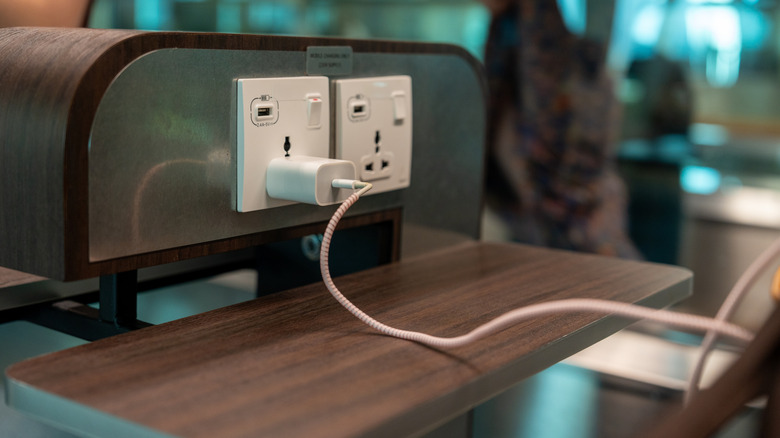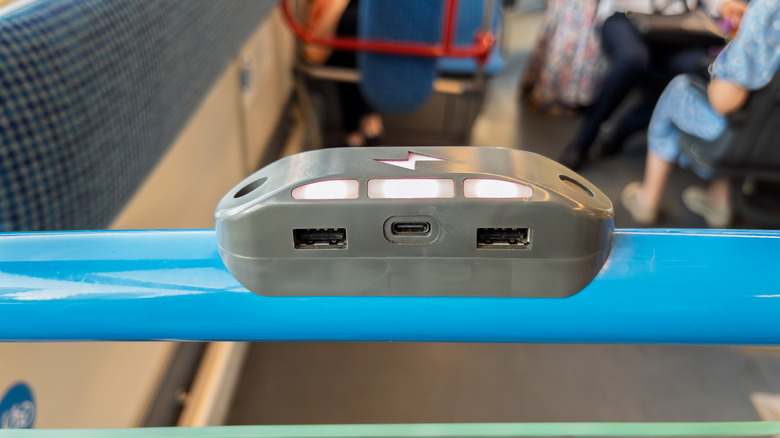TSA Is Warning iPhone Users To Stop Using This Dangerous Setting
The world is elated over the rollout of the iPhone 17 and iOS 26, but Apple's cutting-edge software could throw its users into troubled waters, and it's all because of one default setting on the Wired Accessories screen. To access this menu, you'll need to launch the Settings app, then tap Privacy & Security, followed by Wired Accessories. Once you're there, you'll want to change the Automatically Allow When Unlocked default to Always Ask or Ask for New Accessories.
We're willing to bet you're probably wondering why, and it's because of how dangerous it is to connect your iPhone to a public-facing USB port. Hackers are highly active at locations like airports, train stations, and other busy gathering spots. And according to the TSA, one of the main ways these troublemakers get a hold of our personal data is through a process called juice jacking. This is when a hacker swaps out healthy, functioning USB ports and cables for malicious ones that are designed to harvest user data. On the surface, it just looks like the USB is charging your device as intended, but because the connection supports power and data, hackers are able to work their nasty on the backend.
Hackers are turning charging cables against us
There's also choicejacking to worry about, which is when a hacker uses fake ads, pop-ups, and sites to fool users into thinking they're interacting with their phone's UI when they're really engaging with a hacker-manipulated interface. Traditionally, choicejacking refers to the act of UI manipulation through methods like fake overlays, fake frames, and even transparency hacks, where an invisible element is hidden behind a legitimate button or prompt. This might be something like a "confirm" button on a fake pop-up that's asking you to update your phone software or a "play" button on an innocuous-looking video thumbnail. Once you click the fake element, you've opened your device up to whatever maliciousness the hacker has in store.
But a study carried out by a team at the Graz University of Technology in Austria seems to indicate that accessories like charging cables could be used to spoof user input, too, which hackers may then use to access your data. Be it juice or choice-labeled, the end result is the same: the bad guys getting what they want from you and your device. This is why it's so bewildering that iOS 26 arrived with open-armed connectivity for wired accessories once you've unlocked your iPhone.
Protecting your iPhone from public USB ports
For those of us thinking about upgrading to a brand-new iPhone, or those who plan on updating an existing device to iOS 26 (or if you've already done so), you'll want to disable that auto-allow setting for wired accessories pronto. As mentioned, just tap Settings; Privacy and Security; Wired Accessories, and then select Always Ask or Ask for New Accessories.
There are other precautions you can take when hanging out in a public space, especially if you're often in need of a USB port to top off your battery before hopping on a flight. The best defense is bypassing these public connections entirely by using your own wall charger or portable power bank. You could also carry a USB data blocker with you if you don't want to pass up the convenience of public USB ports. That's still awfully risky, though, if you ask us, especially since hackers are getting savvier by the second. Do yourself a favor and steer clear of community USBs; it's the only surefire way to protect your device from a cyberattack.


